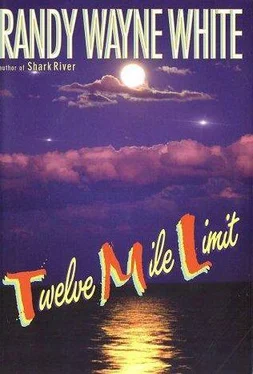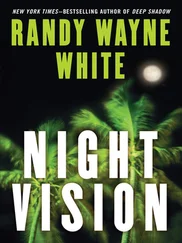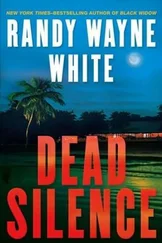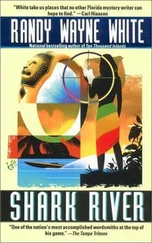Randy White - Twelve Mile Limit
Здесь есть возможность читать онлайн «Randy White - Twelve Mile Limit» весь текст электронной книги совершенно бесплатно (целиком полную версию без сокращений). В некоторых случаях можно слушать аудио, скачать через торрент в формате fb2 и присутствует краткое содержание. Жанр: Триллер, на английском языке. Описание произведения, (предисловие) а так же отзывы посетителей доступны на портале библиотеки ЛибКат.
- Название:Twelve Mile Limit
- Автор:
- Жанр:
- Год:неизвестен
- ISBN:нет данных
- Рейтинг книги:4 / 5. Голосов: 1
-
Избранное:Добавить в избранное
- Отзывы:
-
Ваша оценка:
- 80
- 1
- 2
- 3
- 4
- 5
Twelve Mile Limit: краткое содержание, описание и аннотация
Предлагаем к чтению аннотацию, описание, краткое содержание или предисловие (зависит от того, что написал сам автор книги «Twelve Mile Limit»). Если вы не нашли необходимую информацию о книге — напишите в комментариях, мы постараемся отыскать её.
Twelve Mile Limit — читать онлайн бесплатно полную книгу (весь текст) целиком
Ниже представлен текст книги, разбитый по страницам. Система сохранения места последней прочитанной страницы, позволяет с удобством читать онлайн бесплатно книгу «Twelve Mile Limit», без необходимости каждый раз заново искать на чём Вы остановились. Поставьте закладку, и сможете в любой момент перейти на страницу, на которой закончили чтение.
Интервал:
Закладка:
The day before we boarded Das Stasi and left Dinkin’s Bay, Tomlinson used my truck to drive to Fort Lonesome, an agricultural crossroads northeast of Sarasota where there was a small marine salvage yard. The salvage divers who’d refloated the Seminole Wind had done it without the permission of the missing Michael Sanford or his family. The group had been bitterly criticized in the press and by the public for what many saw as outright theft from a grieving family.
Legally, though, the salvagers didn’t need the approval of Sanford’s relatives or anyone else. Since the Key West pirate days of the 1700s, marine salvage has been a controversial but legitimate enterprise in Florida. Success relies on the misfortune of others, and salvage captains don’t go into the business to make friends. Because a powerful animosity already existed, I worried about my old hippy pal venturing into Florida’s gun-rack and cattle country interior to investigate.
But Tomlinson told me, “Rednecks, man. Except for some of their politics, amigo, I love their spirit; the music, the history, the whole social scene. Hank Williams? Garth Brooks? Those dudes both make me cry like an American baby, plus Garth plays baseball, just like you and me. The folks around Fort Lonesome are gonna greet me like a brother, so don’t you worry your little head.”
Turned out that he was right, as usual. He returned with his own detailed assessment of the Seminole Wind- lots of precise measurements and numbers-including digitized video. Also, he’d stopped to see Dalton Dorsey at Coast Guard St. Pete and, after filing a handwritten Freedom of Information Act request, obtained the official report of the marine surveyor hired to inspect the Seminole Wind after her sinking.
I was surprised when he told me, “You know what qualifications you need to have to be a marine surveyor in Florida? Nothing, nada, zero, zilch. Drive down here from Kansas, print up some business cards, pay for an operational license to run a business, and you, too, can be a so-called ‘licensed professional marine surveyor’ without ever touching your toes in salt water. What a scam. In some cases, anyway.
“You need to tell your buddies at the Coast Guard that the woman who wrote this report, the so-called marine surveyor, needs to take a basic boating course or two. Or they need to start hiring people who actually know something about marine architecture. I think they’re going to be very interested in what my report has to say.”
Tomlinson’s fervor for the mission had not waned. It was “our final gift to Janet,” as he said more than once.
I still wanted to make a dive beneath the light tower where the helicopter had found Amelia (one especially absurd theory among local gossips was that drug runners or military-intelligence types had killed the other three and sunk their bodies but had spared Amelia for reasons unknown). I also wanted to interview a real expert on human physiology and tropical water hypothermia. It had been years since I’d read anything, and I wanted to confirm that what little I did know was still accepted fact.
It was a much-discussed question that begged for a final answer: How long could the three have survived while adrift?
Our work here on the Baja California, though, was nearly done.
Now, on this, our final dive, Amelia and Tomlinson followed me down the line, taking it slow, giving each other plenty of time to clear their ears and adjust to the increasing water pressure. Water has weight; it squeezes the tissues, and, at a hundred feet, bubbles from a regulator change pitch, as if issued through strained vocal cords.
An alien space has been breached. Your body knows it. Your ears know it. The change, the unfamiliarity, suggest an edgy potential.
There is a transformation of light, too. It’s not just that there is less light in a hundred feet of seawater, though that is certainly true. The gradual change suggests a density of darkness and an intransigence of gray that is defining and permanent. This is a world separate from others-if other worlds actually do exist.
Beneath ninety feet of water, the sunlight or “white light” that land dwellers know has been reduced in its radiant strength by 90 percent, and it has been leached of every spectral color but green. What remains is a primal green, a chemical and cellular green, as if one has been ingested by something massive, alive-some photosynthetic being. Human eyes become feeble collectors and undependable interpreters. Four atmospheres beneath the wind is no place for a primate to linger.
With fingers interlaced, arms folded across my chest, I did a slow-motion flutter kick, the whip of old Rocket fins powering me over the rubble of the ruined steamship. There were cables, bent railings, barrel-sized storage tanks crushed, mangled-all still exhibiting the physics of Nazi percussion, and hosts to a thick, living skin of veined, jellied, clustered, and copper-gray benthic growth, hairy with broken fishing line and byssal thread.
Ahead was a cloud of thread herring, glittering like coins. The cloud became a curtain, parting to let us pass, then closed again behind us, giving the illusion that we’d just swum into a trap and that the trap had been sprung.
There was a school of forty-pound amberjacks moving as one body in perfect incremental spacings; a predatory tribe, each member the size of a pit bull, scouting, hunting, as, beneath them, gray snapper did nervous figure-eights. There were tropicals, too: clown fish, butterfly fish, and sergeant majors, all drab at this depth, and barracudas stacked at the edge of visibility like helium swords.
The working freighter, Baja California, was long dead, killed by a German torpedo in a great war. The wreck of the Baja California was intensely, inexorably alive.
We’d found most of the wreckage from the Seminole Wind just beyond the barnacled framework of some kind of World War II vehicle. Now I touched the vehicle’s steel fender, stopping myself, and I signaled Amelia and Tomlinson to assume our familiar search formation: Amelia in the middle, Tomlinson and me on either side, each of us about nine feet apart.
We swam to the edge of the wreck, turned, respaced ourselves, then swam back over the wreck.
It was Amelia who made our final discovery. Deep in a crevice hollowed out in the body of the ship, she spotted Michael Sanford’s black weight belt, and then, a few meters away and nearly on top of each other, there was Janet’s chartreuse weight belt and Amelia’s own orange weight belt.
Grace Walker’s weight belt had already been retrieved by the salvage divers who refloated the Seminole Wind, so now they were all accounted for.
It was just as Amelia had told us: When she and Janet resurfaced after completing their dive, they’d helped Sanford and Walker get into their BCDs, returned to the swamped boat, and dumped their weight belts together.
They were side by side, exactly where they should have been.
I looked into Amelia’s eyes when she first pointed to her discovery. Her face showed the kind of intense emotion seen in old silent films. Back at Dinkin’s Bay, one of the first questions I’d asked her was if their weight belts had been found. How those belts were distributed on the bottom would say much about what really happened that tragic day.
For Amelia, it was a vindication of sorts, at least as far as her relationship with me was concerned. Her jade eyes peered out through the lens of her face mask, into my eyes, and then she gave me a quick and unexpected hug.
I checked my air gauge, checked my watch. I tied the weight belts onto a float bag, used my regulator to inflate it, and sent the belts to the surface.
15
That night, as we sledded and wallowed our way toward Sanibel at an unvarying twelve knots, Amelia and I sat on fly bridge captain’s chairs, high above the black sea, letting the autopilot steer the boat while we chatted and gazed at the star stream above.
Читать дальшеИнтервал:
Закладка:
Похожие книги на «Twelve Mile Limit»
Представляем Вашему вниманию похожие книги на «Twelve Mile Limit» списком для выбора. Мы отобрали схожую по названию и смыслу литературу в надежде предоставить читателям больше вариантов отыскать новые, интересные, ещё непрочитанные произведения.
Обсуждение, отзывы о книге «Twelve Mile Limit» и просто собственные мнения читателей. Оставьте ваши комментарии, напишите, что Вы думаете о произведении, его смысле или главных героях. Укажите что конкретно понравилось, а что нет, и почему Вы так считаете.












